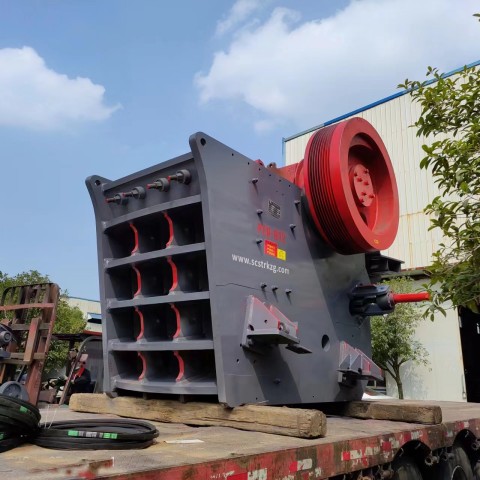Factors of Jaw Crusher Machines' Output in Stone Crushing.
In the realm of stone crushing, the jaw crusher machine, synonymous with terms like "machine that crushes rock" and often lumped under the umbrella term "stone crushers," holds paramount importance. It serves as the backbone of numerous construction and mining projects, tasked with breaking down large rocks into smaller, more manageable pieces. However, the efficiency and output of these machines are not solely dependent on their robust design but are also influenced by several external factors.
First and foremost, the type and hardness of the rock being crushed play a pivotal role. Harder rocks require more energy and time to be broken down, naturally reducing the crushing plant's output. Conversely, softer rocks can be crushed more easily, leading to higher production rates.

The size of the jaw crusher machine's feed opening is another crucial factor. A larger feed opening allows for the intake of larger rocks, which in turn increases the machine's capacity to process more material in a given time, directly correlating with the overall output of the jaw crusher.
Moreover, the quality and maintenance status of the jaw plates are also significant. Over time, jaw plates undergo wear and tear, which can reduce the efficiency of the machine. Regular maintenance and the use of high-quality jaw plates can mitigate this issue, ensuring that the crusher machine operates at its optimal capacity.
Operational parameters such as the speed of the jaw's movement, the gap between the jaw plates, and the feeding rate of the material into the machine also play a vital role. Improper settings can lead to inefficient crushing, jamming, or even damage to the machine. Therefore, it is crucial to adjust these parameters according to the specific needs of the project and the type of rock being crushed.
Furthermore, the environment in which the jaw crusher machine operates can also impact its output. Factors such as temperature, humidity, and the presence of abrasive materials in the air can all affect the machine's performance. In extreme conditions, special measures may be required to protect the machine and ensure its continued operation.
In conclusion, the output of a jaw crusher machine in stone crushing is influenced by a multitude of factors, including the type and hardness of the rock, the size of the feed opening, the quality of the jaw plates, operational parameters, and the operating environment. By carefully considering and addressing these factors, construction and mining professionals can maximize the efficiency and productivity of their jaw crusher machines, ensuring that they meet the demands of their projects.








